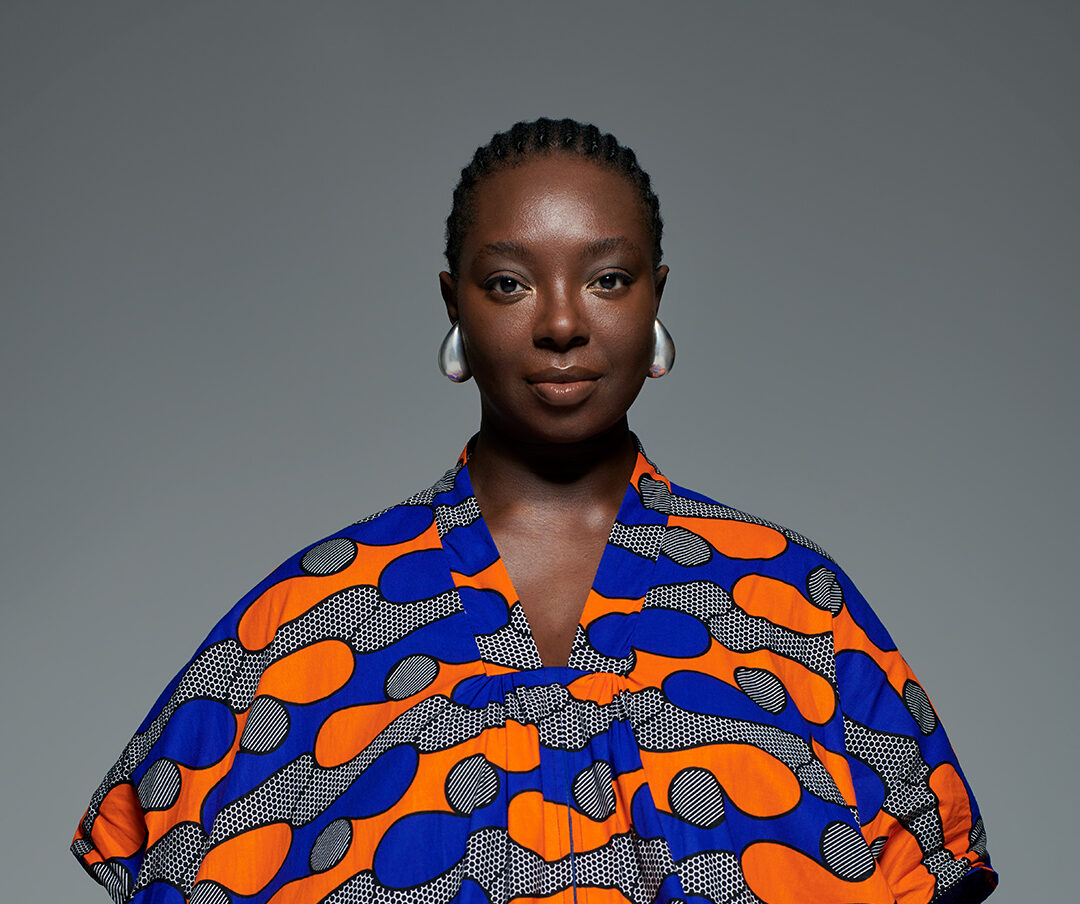THE WORD Afrodeutsche kept being repeated over and over until it stuck. Henrietta Smith-Rolla, better known to many electronic music fans as Afrodeutsche, had just embarked on finding her dad who she never knew.
Calling it a “pretty heavy and deep journey” into her heritage and that would go on to transform her in her new era of music creation.
“I spoke to people who knew him in London, and it all came to this point where I found out that he was an artist. And he had gained a scholarship to Germany,” she told The Voice.
“So, he moved to Germany and he spent most of his years there studying and would come back and forth.”
Her grandfather had travelled to Russia in the same search of finding out who his family was. Her European roots found her discovering Ghana and how they had been colonised.
She says she had played multiple shows in Germany, a place she had loved as a little girl, and the same word Afrodeutsche came around – meaning African German – always appeared.
The moment she found her heritage was also a moment in which her music found acclaim in the city that elevated her unique sounds.
Now, Afrodeutsche is preparing to take to the stage, described as a night of “musical innovation from three creative forces” at the lauded Manchester International Festival where she will perform alongside Manchester Camerata in a show conducted by the esteemed Robert Ames.
A polymath DJ and composer, Afrodeutsche will be performing a new composition called MIF23 – a collection of sounds brought together by the rhythms of contemporary classical, techno and house as well as electro.
The Ghanaian/Russian/German composer says it all started as a young child growing up in Devon, first taking an affinity to the sounds around her.
“I would record everything that I heard it would be recorded on cassette, I would record the radio, I would record videos from the television and music videos, and people doing concerts
When she was seven-years-old, she gained a scholarship to the local university to play the violin which mastered until the age of eleven. It was classical music from renowned pianists like Mozart and Beethoven which surrounded her. It was her mum’s favourite music,” she says.
“Music was just everything. I wasn’t actually making any sort of electronic music or digital music until I moved to Manchester, which was 18 years ago.”
Afrodeutsche’s arrival in the North-West was a seminal moment that accelerated her unique sound, spending time immersed in Manchester’s evolving jazz scene. Listening to artists like Mikey Don and Luke Flowers regularly, she says left her “spoiled rotten” at the depths of which her musical inspiration could expand to.
Away from the bustle of London, she found that there was software that could begin to use to record her music in a way she had never done before in a new space.
“The move to Manchester [opened my eyes to the vastness of music creation], I was experiencing live music in a traditional sense. I was surrounded by people who made music and they invited me in,” she says.
“They’d say do you want to play drums on this? And I would say I don’t play drums, but I will.
And I would teach myself to play drums and I’d end up playing drums and someone’s album and then someone will say, play bass on this.”
She added: “Manchester had this big, wide span of open arms for someone who really really needed to be making music.”
When she decided to make the leap in leaving behind the bands she used to perform in and embark on a solo journey in 2016, Afrodeutsche described it as a “very scary time” in her career.
“I didn’t really know how to use any software and I didn’t really know how to record it was very, very, difficult, but I went through a very difficult breakup.
“And what that meant was, I had the material, the heart for material. So I just wrote, and I wrote, and I wrote and I just wrote my heart.”
The year 2018 welcomed her first album, Break before Make, a fusion of the classical tempos of her childhood, her mum’s favourite music and 808 drum drum machines that made up her electronic sounds.
That same year she would release Advent 18, a compilation album. RR001 in 2019 and Kamali in 2020.
Discovering her identity and eclectic sounds of her childhood have brought her here. Afrodeutsche says her upcoming performance at Manchester International Factory is her “most extensive” yet in her blossoming career.
“I was diagnosed with autism last year…since the diagnosis I’ve been journeying through love and my experience of love and my understanding of love and you know, my journey of love. And so this piece I’m writing is a song. It’s a song and it’s just gently talking about my discovery of love, my discovery of my faith.
“And it’s with the Manchester Camerata. So expect lots of strings. I’ll be playing the Grand piano, and singing, and lots of electronics, and video and visuals. So it’s, it’s what I want this to be. I want this to be a full sensory experience for everyone who comes.”
She admits she’s always struggled to find the words to define the merge of the genres that make up all that is Afrodeutsche and the music she performs.
She added: “I love patterns in sound. So expect eight layers of harmonies, except rolling and sweeping strings. Often my music sounds quite melancholic. But it always reaches a point of joy.”
- Afrodeutsche will be performing with Manchester Camerata at Manchester International Festival on 5 July. To find out more, visit Factory International.org.


Comments Form